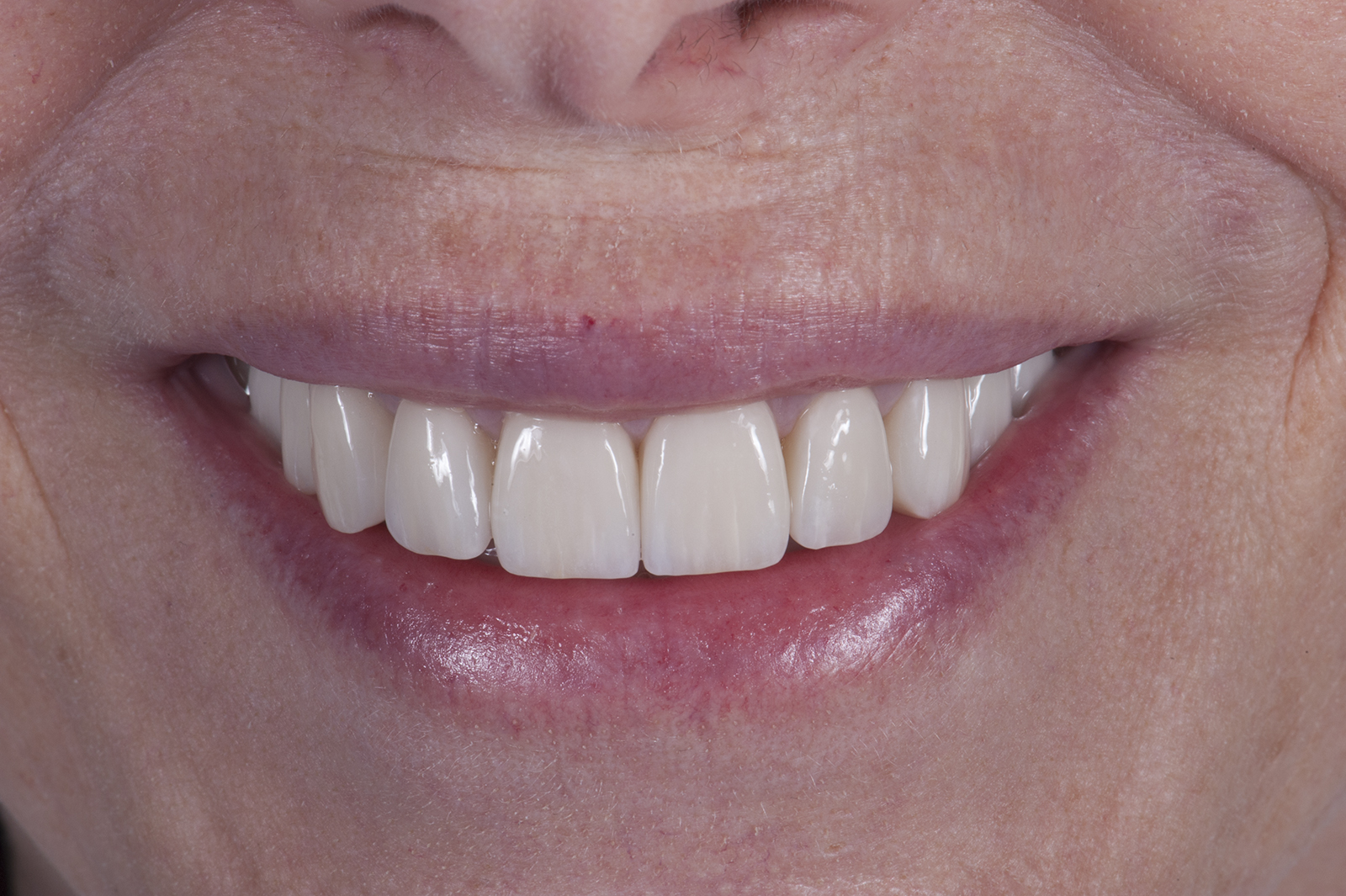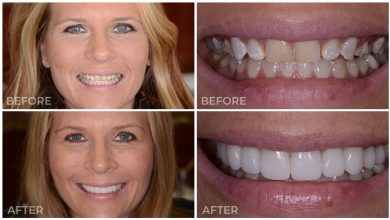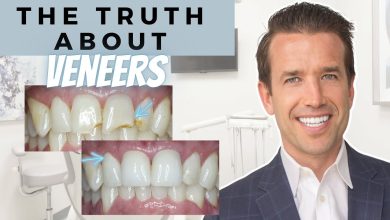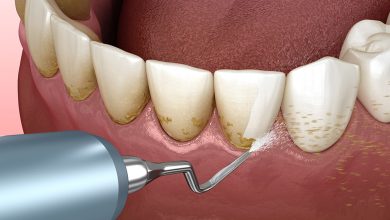Are Veneers And Dental Implants the Same?
Veneers and dental implants are not the same; veneers are thin coverings placed on the front surface of teeth, while dental implants replace the entire tooth structure with an artificial tooth root. Veneers improve the appearance of teeth by correcting discoloration, shape, and alignment issues, while dental implants are a permanent solution for replacing missing teeth.
They provide stability and functionality similar to natural teeth. These two dental procedures serve different purposes and have distinct processes and outcomes. Understanding their differences can help individuals make informed decisions regarding their oral health and aesthetic goals.
Understanding The Difference
What Are Veneers?
Veneers are thin shells made from porcelain or composite resin that are custom-made to fit over the front surface of teeth. They are designed to improve the appearance of teeth by correcting imperfections such as discoloration, chips, or misalignment. Veneers are a popular cosmetic dental treatment option due to their ability to create a natural and aesthetically pleasing smile.
What Are Dental Implants?
Dental implants are a restorative dental procedure used to replace missing teeth. They consist of a titanium post that is surgically inserted into the jawbone, acting as an artificial tooth root. A prosthetic tooth, such as a crown, is then attached to the implant. Dental implants provide a long-term solution for tooth loss and offer benefits such as improved functionality and stability.
While both veneers and dental implants are dental treatment options that aim to enhance the appearance of teeth, they serve different purposes. Veneers primarily focus on improving the aesthetics of teeth by covering imperfections, while dental implants are used to replace missing teeth. Consulting with a dentist will help determine which treatment option is most suitable for individual needs and goals.

Credit: www.tmprosthodontics.com
When To Consider Veneers
Veneers are an excellent solution for various dental issues. They are a popular choice when it comes to improving the appearance of teeth that are discolored, chipped, or worn down. If you desire a whiter and straighter smile, veneers can effectively address these concerns. One of the advantages of veneers is that they provide a natural-looking result, enhancing your overall facial esthetics. They can even help to close small gaps between teeth and correct minor enamel irregularities. Additionally, veneers require minimal tooth preparation compared to other dental procedures. This means that only a thin layer of enamel needs to be removed before placing the veneer. However, it’s important to consult with a qualified dentist or prosthodontist to determine if you are a suitable candidate for veneers.
Advantages Of Veneers
– Natural-looking result
– Whitens and straightens teeth
– Fixes minor gaps and enamel irregularities
– Minimal tooth preparation required
Indications For Veneers
– Discolored or stained teeth
– Chipped or fractured teeth
– Worn down teeth
– Minor gaps between teeth
– Minor enamel irregularities
When To Consider Dental Implants
htmlWhen considering options for dental restoration, it is essential to understand the difference between veneers and dental implants. Dental implants are an ideal solution for individuals who have lost teeth due to decay, injury, or other reasons. One of the significant advantages of dental implants is that they provide a permanent and natural-looking solution. They offer stability and functionality similar to natural teeth, allowing individuals to bite and chew with ease. Furthermore, dental implants can help prevent bone loss and preserve the structure of the jaw. Indications for dental implants include single tooth replacement, multiple teeth replacement, or full arch reconstruction. Before undergoing implant placement, a thorough evaluation is necessary to assess oral health, bone density, and overall suitability. By understanding the benefits and indications for dental implants, individuals can make an informed decision about their dental restoration options.
Comparing Longevity And Durability
When comparing the longevity and durability of veneers and dental implants, it is important to consider the lifespan of each option and the factors that can affect their longevity.
| Veneers | Dental Implants |
|---|---|
| Veneers typically have a lifespan of 10-15 years. | Dental implants can last a lifetime with proper care and maintenance. |
The lifespan of veneers is influenced by factors such as oral hygiene, clenching or grinding of teeth, and dietary habits. Poor oral hygiene or excessive force on the veneers can lead to their early failure.
On the other hand, dental implants have a higher success rate and can withstand normal biting forces. However, factors like gum disease, poor oral hygiene, smoking, and overall health can affect the longevity of dental implants.
In summary, while veneers have a shorter lifespan compared to dental implants, both options can provide long-lasting solutions for improving your smile. Proper care and regular dental visits are essential to maximize the lifespan of either choice.
Examining Aesthetic Results
Achieving natural-looking results with veneers involves the use of thin, custom-made shells that are bonded to the front of the teeth. Veneers can be a great option for individuals seeking to improve the appearance of stained, chipped, or unevenly spaced teeth. The shells are made from porcelain or composite resin, which mimics the color and translucency of natural teeth. The procedure typically involves removing a small amount of enamel to ensure a proper fit. On the other hand, dental implants are a restorative solution for missing teeth. Unlike veneers, implants involve the placement of artificial tooth roots directly into the jawbone. This provides a stable foundation for the replacement tooth or dental crown. Dental implants offer a permanent solution that can look and function like natural teeth. When evaluating aesthetic outcomes, both veneers and dental implants can provide natural-looking results. However, it’s important to consult with a skilled dentist who can assess your specific dental needs and create a personalized treatment plan. Whether you opt for veneers or dental implants, the goal is to achieve a beautiful smile that enhances your overall appearance.
Exploring Cost And Insurance Coverage
Are Veneers and Dental Implants the Same? When considering dental procedures, it is essential to explore the cost and insurance coverage. The cost of veneers can vary based on multiple factors, including the material used, the number of teeth being treated, and the complexity of the case. Factors affecting the cost of dental implants include the type of implant, the number of implants needed, and the need for additional procedures such as bone grafting or sinus lifts.
Insurance coverage for veneers and dental implants can also vary. Most dental insurance plans do not cover the cost of veneers, as they are considered cosmetic procedures. However, some insurance plans may provide partial coverage for dental implants, especially if they are needed for functional purposes. It is crucial to check with your insurance provider to understand the coverage options available to you.
When considering veneers or dental implants, it is essential to consult with your dentist to determine which option is most suitable for your specific dental needs and budget. Understanding the cost factors and insurance coverage considerations can help you make an informed decision about these dental procedures.
Assessing Procedure And Recovery
htmlVeneer placement involves a straightforward process. First, the dentist prepares the teeth by removing a small amount of enamel, making room for the veneers. Then, impressions of the teeth are taken to create custom-made veneers that match the patient’s natural teeth. During the final placement, the veneers are securely bonded to the teeth using dental adhesive and a curing light. This procedure typically requires minimal anesthesia and is generally painless. Patients can expect immediate improvement in appearance and functionality.
Dental implant placement is a more extensive procedure with multiple stages. It begins with the extraction of the damaged tooth, if necessary. Next, the dentist surgically places the implant post into the jawbone. After a healing period of several months, during which the implant integrates with the bone (osseointegration), a connector called an abutment is attached to the implant. Finally, a custom-made crown is fixed onto the abutment, completing the restoration. This process often requires local anesthesia and entails a longer recovery period compared to veneer placement.
Following veneer placement, patients may experience minor tooth sensitivity, which usually subsides within a few days. Routine oral hygiene practices, including regular brushing, flossing, and professional check-ups, are essential to maintain veneers’ longevity. Dental implants require more extensive aftercare. Patients may experience temporary discomfort, swelling, and bruising after implant surgery. During the osseointegration period, a soft food diet and diligent oral hygiene are crucial. Regular dental visits are necessary to monitor the implant’s health and maintain optimal oral hygiene.
Considering Oral Health Implications
htmlConsidering Oral Health Implications:
Veneers and dental implants are both dental procedures commonly used to improve the appearance and functionality of teeth. However, they have different impacts on oral hygiene.
Impact on oral hygiene with veneers:
Veneers are wafer-thin, custom-made shells that are bonded to the front surface of teeth. While veneers can enhance the appearance of teeth, they do not directly impact oral hygiene. Regular brushing, flossing, and dental check-ups are still essential.
Impact on oral hygiene with dental implants:
Dental implants, on the other hand, are artificial tooth roots surgically placed into the jawbone to support replacement teeth. Since dental implants mimic natural teeth, they require the same level of oral hygiene as your natural teeth. Regular brushing, flossing, and dental check-ups are vital for maintaining oral health.
Potential complications and maintenance:
| Procedure | Potential Complications | Maintenance |
|---|---|---|
| Veneers | – Sensitivity to hot and cold – Chipping or cracking – Gum irritation |
– Avoid chewing on hard objects – Regular dental cleanings – Follow good oral hygiene practices |
| Dental Implants | – Infection – Implant failure – Bone loss |
– Regular dental check-ups – Good oral hygiene practices – Avoid smoking or excessive alcohol consumption |
Overall, while both veneers and dental implants have their own benefits and implications on oral health, maintaining good oral hygiene practices is crucial for the long-term success and health of your teeth, regardless of the procedure.
Making The Right Decision For You
Choosing between veneers and dental implants is an important decision that requires careful consideration. Factors to consider include the condition of your teeth, the desired outcome, and your budget. Veneers are thin porcelain shells that are bonded to the front of your teeth, improving their appearance and covering imperfections. They are a great option if you have relatively healthy teeth but are looking for a cosmetic enhancement. On the other hand, dental implants are artificial tooth roots that are surgically inserted into the jawbone and topped with a dental crown. They are a more invasive and expensive procedure but offer a long-term solution for missing teeth.
When contemplating this decision, it’s essential to consult with a dental professional who can assess your specific dental needs and provide personalized advice. They will consider factors such as the health of your teeth, the likelihood of future dental issues, and your overall oral health. By discussing your goals and expectations with a dental professional, you will be able to make an informed decision and choose the option that is best for you.
Frequently Asked Questions For Are Veneers And Dental Implants The Same?
Which Is Better Dental Implant Or Veneers?
Dental implants and veneers serve different purposes. Implants replace missing teeth, while veneers enhance the appearance of existing teeth. The better option depends on your specific dental needs. Consult with a dentist to decide which treatment suits you best.
Which Is More Expensive Veneers Or Implants?
Veneers are generally less expensive than implants.
Do Implants Last Longer Than Veneers?
Implants generally last longer than veneers, as they are surgically placed into the jawbone for a permanent solution. Veneers are thin coverings that bond to the front of teeth, providing a cosmetic improvement but may need replacement in about 10-15 years.
Can Veneers Replace Implants?
Veneers cannot replace implants as they serve different purposes. Veneers improve the appearance of teeth, while implants replace missing teeth. Veneers are thin shells bonded to the front of teeth, while implants are surgical fixtures attached to the jawbone as root replacements for missing teeth.
Conclusion
To conclude, while both veneers and dental implants serve to enhance the appearance and functionality of teeth, they are distinct procedures. Veneers are thin shells placed on the front surface of teeth, correcting minor aesthetic concerns. In contrast, dental implants are artificial tooth roots used to replace missing teeth.
Understanding the differences between these treatments is crucial in making informed decisions about your dental needs. Choose the option that aligns with your unique requirements and consult with a qualified dental professional for personalized advice.



